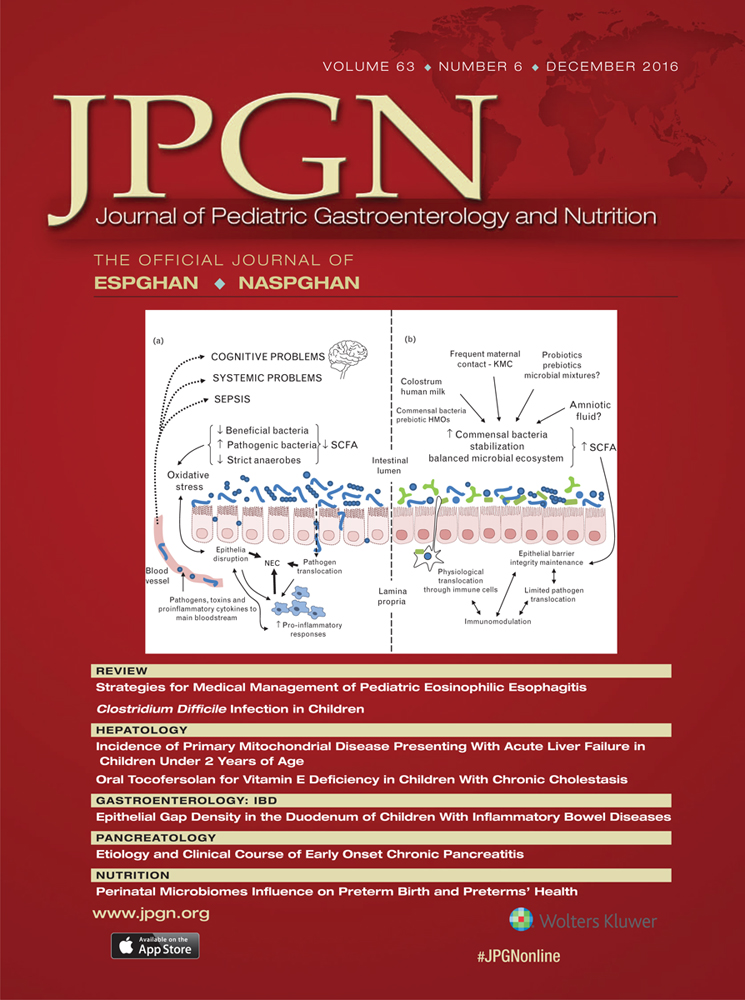Effect of Psychotherapy on Health Care Utilization in Children With Inflammatory Bowel Disease and Depression
The present study was supported by the National Institute of Mental Health (R01 MH07777), the NIH Director's Innovator Award (1DP2OD001210), NIMH training grant (R25MH054318), and the Crohn's & Colitis Foundation of America Research Fellowship Award #3590.
www.clinicaltrials.gov registration number: NCT00534911.
A.B. received consulting fees from Millenium, Dyax, Cubist, and Nutricia, lecture fees from Merck, and royalties from UpToDate. D.R.D. received royalties from American Psychiatric Publishing Inc. E.M.S. is a paid advisor for Merck, Abbvie, and iHope Networks Inc, and she has received payment for expert testimony in a malpractice case, has received payment from Imedex for speaking at a CCFA meeting, and received royalties as book editor from American Psychiatric Publishing Inc. The remaining authors report no conflicts of interest.
ABSTRACT
Objectives:
Pediatric patients with inflammatory bowel disease (IBD) are at an increased risk of developing depression compared with community controls. Depression often negatively influences illness behaviors such as resource utilization. We sought to investigate the effects of treating depression on utilization of medical resources in depressed pediatric patients with IBD by comparing rates of health care utilization 1 year before and after psychotherapy.
Method:
Two hundred seventeen subjects ages 9 to 17 years with IBD and depression received 3 months of psychotherapy for depression as part of a multicenter randomized controlled trial. Of these 217 subjects, 70 had utilization data available 1 year prior and 1 year after receiving 3 months of psychotherapy. Primary outcomes included frequency of hospitalizations, inpatient hospital days, outpatient gastrointestinal visits, and number of emergency room visits, radiological examinations, and endoscopies. Within subject analyses were completed comparing health care utilization 12 months before psychotherapy compared with the 12 months after the conclusion of psychotherapy.
Results:
Fifty-one and 19 patients had CD and UC, respectively. A total of 55.7% of patients had major depression and 44.3% had minor depression. Overall, all study measures of health care utilization were significantly reduced after psychotherapy (P < 0.01)—including gastrointestinal-related (mean values) hospitalization frequency, inpatient days, outpatient visit, emergency room visits, radiological examinations, and endoscopies.
Conclusions:
Psychotherapy for comorbid depression in pediatric patients with IBD is associated with decreased GI-related health care utilization. The present study highlights the importance of screening for depression in a pediatric population with IBD, and that psychotherapy may be a reasonable adjunctive treatment for pediatric patients with IBD and comorbid depression.




